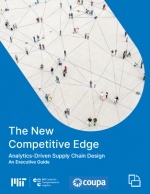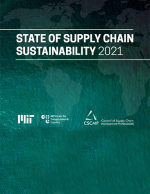A Consensus On The Truth? Blockchain Applications in Supply Chain Management
The MIT Center for Transportation & Logistics held two roundtable events, one in 2017 another in 2018, with supply chain practitioners on the topic of blockchain in the supply chain – this roundtable report examines the blockchain challenges and concerns discussed at both events.
Blockchain Applications in Supply Chain Management
On October 9 & 10, 2018, the MIT Center for Transportation & Logistics (MIT CTL) convened approximately 50 supply chain practitioners and researchers in a roundtable event to assess the potential of blockchain or distributed ledger technology – an innovation that was the subject of much hype but which relatively few professionals in the industry understood.
The discussions identified a number of potential supply chain applications as well as challenges in the adoption of blockchain.
Nearly one year later, supply chain practitioners have gained a better understanding of blockchain’s potential, and a number of applications are in advanced stages of development.
However, the technology and its use remain widely misunderstood. And while there are emerging applications, adoption seems to be slower than anticipated and there continues to be much skepticism about blockchain’s viability in complex supply chain environments and when data/information is unreliable.
Blockchain in Supply Chains: Looking Beyond the Hype
Blockchain technology has been likened to the internet in terms of its potential impact on the commercial world. The financial services industry has taken the lead with investments amounting to more than $1 billion in developing blockchain applications – now the focus is shifting to other sectors, and especially supply chain management.
The concept of a blockchain – a distributed, tamper-proof and time-stamped database of transactions that can be managed without intermediaries – is highly attractive in the supply chain domain, and the industry has launched a number of proof-of-concept initiatives.
However, awareness of how blockchains work and what they can accomplish is still relatively low. The lack of knowledge is exacerbated by the fast pace at which the technology is evolving.
On October 25, 2017, MIT CTL brought supply chain practitioners together to define blockchain systems. Attendees also explored the benefits that blockchains might deliver, and how the technology could be applied today and in the future.
Experts involved in real-world blockchain projects stimulated the discussions with brief accounts of their experiences to date.
Download both MIT CTL - Roundtable Reports, October 2017 and 2018, Blockchain Applications in Supply Chain Management Now!
What’s Related




Favorites





